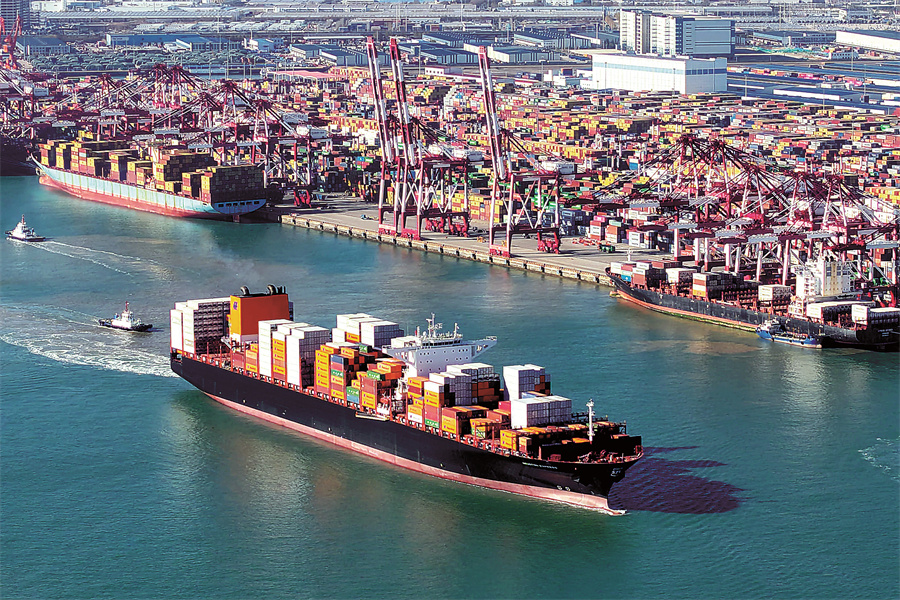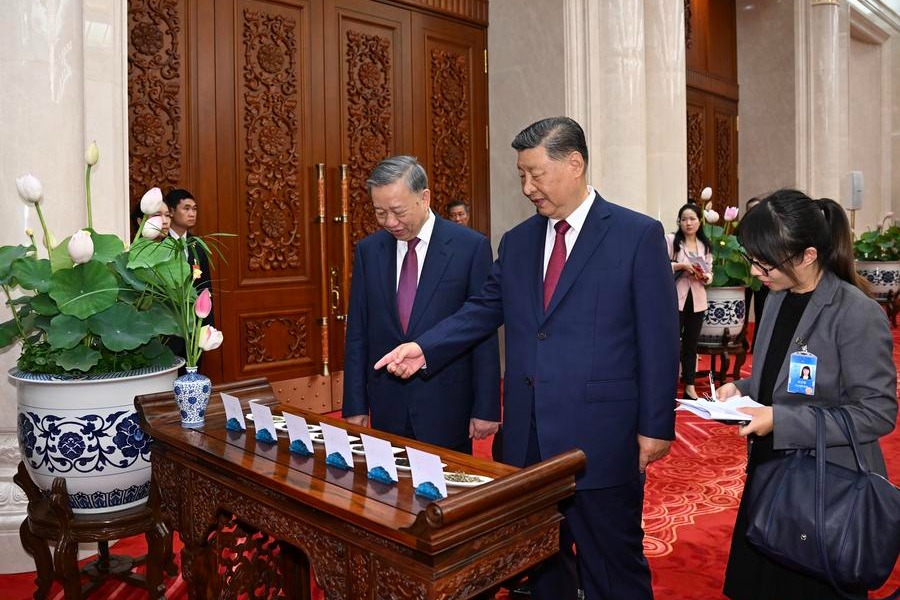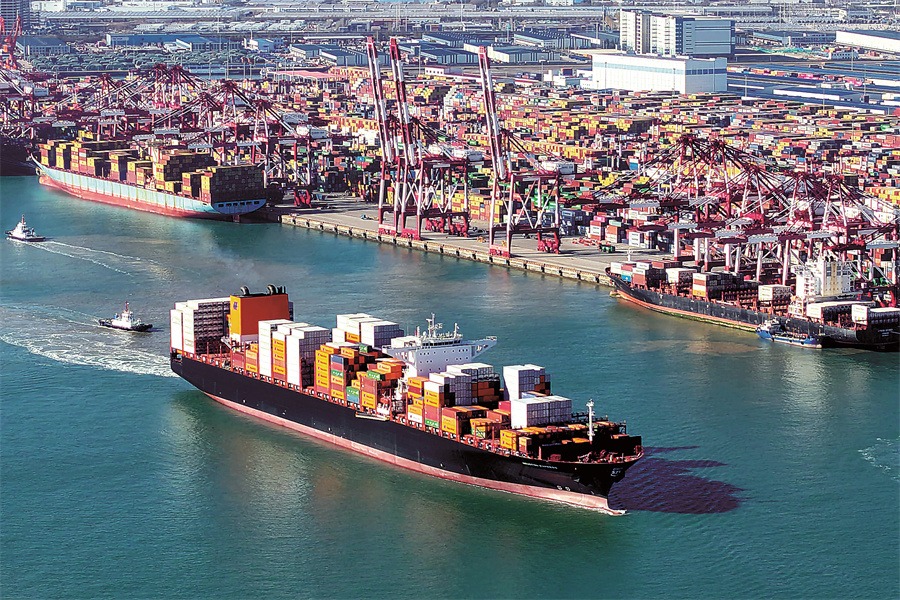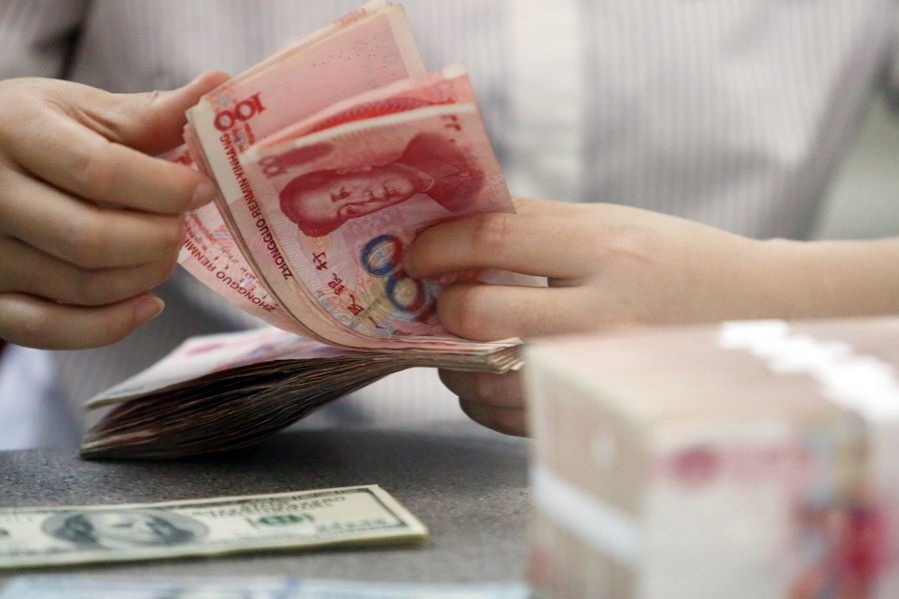To answer three key questions about economic globalization


In the face of a sluggish world economic recovery, the rising threat of protectionism, and the widening gap between the rich and the poor, discussions around economic globalization are increasing within the international community. At the center of discussion, there are three main questions as follows.
Has economic globalization stagnated or regressed?
Economic globalization has not stagnated or regressed, but continues to develop against headwinds.
According to the Global Trade Update published by the United Nations Conference on Trade and Development (UNCTAD), global trade is on track to hit a record $33 trillion in 2024, marking a 3.3 percent annual growth. It has demonstrated strong resilience, largely driven by digital trade and trade in services.
Despite unbridled unilateralism and protectionism, and some countries' obsession with "decoupling and severing supply chains" and building "small yard with high fences," the overall global landscape shows that businesses around the world continue to thrive within the interconnected supply, industrial and value chains. The World Openness Report 2024 indicates that the rise and evolution of global value chains reflect the inherent rationale of economic globalization, which is driven by digitalization, green economy, and services sector.
Globally, political consensus and policy measures to promote open development are steadily increasing.
The high-quality implementation of the Regional Comprehensive Economic Partnership (RCEP) has delivered increasingly prominent development dividends to member countries. The Comprehensive and Progressive Agreement for Trans-Pacific Partnership (CPTPP) has not waned despite the withdrawal of some country; instead, it has attracted more countries to join.
African countries are accelerating the implementation of the African Continental Free Trade Area (AfCFTA), which was enacted in several African nations, including South Africa, Ghana, and Kenya in 2024. The 31st APEC Economic Leaders' Meeting also reached an important consensus on upholding the multilateral trading system and advancing regional economic integration.
How to view the headwinds and undertows facing economic globalization?
Despite headwinds and undertows, economic globalization has always been the general trend.
Historically, the global economy was thrown into disarray by two world wars, which severed international trade routes. The subsequent nearly half-century-long Cold War divided the world into two distinct camps, hindering economic exchanges and disrupting the flow of resources.
However, in the long run, these disruptions did not prevent the world from returning to the path of economic globalization. This is because economic globalization is an objective requirement of growing social productive forces and a natural outcome of advancement in science and technology - a fact that no one can change.
The current headwinds against economic globalization are largely a result of political shifts within a few countries and do not signify a change in the fundamental logic that economic globalization promotes global welfare.
According to the World Trade Organization (WTO), between 1996 and 2021, a high trade share of GDP was strongly linked to faster economic growth in low- and middle-income economies. This fully proves that openness is the only path toward prosperity and development for every country.
Today, the world is moving faster to embrace a digital, green and smart economy, building up powerful energy for further expedition of economic globalization down the road.
WTO statistics show that the global exports of digitally delivered services reached $4.25 trillion in 2023, up nine percent year-on-year, accounting for a record 54.2 percent of world services exports.
Besides, green and sustainable development has become a global consensus, with global annual renewable capacity additions increasing by almost 50 percent in 2023.
Mark Leonard, director of the European Council on Foreign Relations, noted that due to accelerated reforms in energy and technology, the world is experiencing "re-globalization" rather than "de-globalization."
How to resolve the issues and challenges brought by economic globalization?
Economic globalization is at a new crossroads. It must be guided carefully to maximize its benefits and ensure its sound and sustainable development.
The World Trade Report 2024 warns that mounting protectionism threatens to unwind 30 years of progress in closing income gaps between the poor and the rich. Both the United Nations and the International Monetary Fund have recently cautioned that rising tariffs could hamper global economic growth. All countries, especially major economies, should uphold the general trend of open development, resist protectionism, and build an open world economy.
To resolve the challenges brought by economic globalization, the key lies in promoting a universally beneficial and inclusive economic globalization. It is important to address the development imbalances between and within countries resulting from the global allocation of resources, and ensure that different countries, classes, and communities can all participate in and benefit from economic and social development, so as to take economic globalization to a new phase that is more dynamic, inclusive, and sustainable. This requires wisdom and decisive action from governments of all countries.
China has blazed a path of pursuing common development through opening up. Its active participation in economic globalization has not only driven its own development but also provided immense development opportunities to other countries.
China's experience demonstrates that promoting a universally beneficial and inclusive economic globalization can contribute to shared development of all countries in the world. This is why China is committed to pursuing a mutually beneficial strategy of opening up, expanding voluntary and unilateral opening up in an orderly manner, steadily expanding institutional opening up, and pushing for an open world economic system.
Economic globalization is a sure way for human society to achieve development and an irreversible trend of the times. All countries must possess the wisdom to recognize this overarching trend, and the determination and confidence to work with it, so as to join hands in promoting a universally beneficial and inclusive economic globalization.































